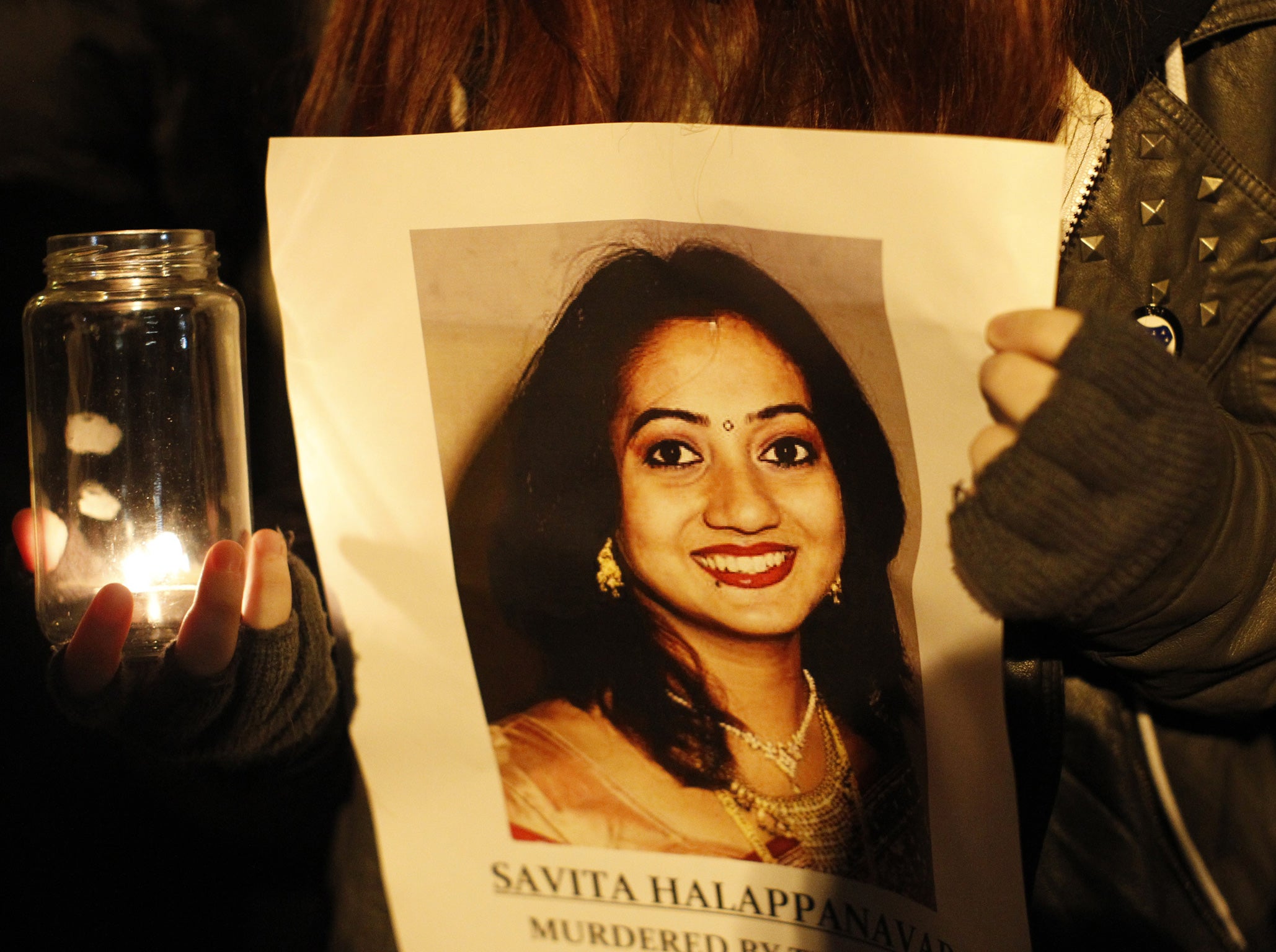Irish demand reform to abortion law
Anger grows after dying woman's pleas for a termination ignored

Your support helps us to tell the story
From reproductive rights to climate change to Big Tech, The Independent is on the ground when the story is developing. Whether it's investigating the financials of Elon Musk's pro-Trump PAC or producing our latest documentary, 'The A Word', which shines a light on the American women fighting for reproductive rights, we know how important it is to parse out the facts from the messaging.
At such a critical moment in US history, we need reporters on the ground. Your donation allows us to keep sending journalists to speak to both sides of the story.
The Independent is trusted by Americans across the entire political spectrum. And unlike many other quality news outlets, we choose not to lock Americans out of our reporting and analysis with paywalls. We believe quality journalism should be available to everyone, paid for by those who can afford it.
Your support makes all the difference.An unprecedented surge of public anger in the wake of the death of Savita Halappanavar, an Indian dentist living in Galway, now seems to have made it inevitable that politicians in Dublin will be forced to ease restrictions on abortion in the Irish Republic. Ten thousand protesters marched through the capital yesterday, chanting "never again", before holding a minute's silence and a candle-lit vigil outside Prime Minister Enda Kenny's offices.
Outrage has swept the country after Mrs Halappanavar's death in a Galway hospital from blood poisoning following a miscarriage at 17 weeks. Her husband, Praveen, said she deteriorated after being repeatedly refused a termination of her pregnancy, even though her baby was not viable.
Official inquiries are under way into the incident, which has received much international publicity and caused political uproar. The most vexing issue is whether the death was attributable purely to the law – which prohibits abortion except in cases such as Mrs Halappanavar's – or its interpretation by hospital staff.
It is already clear that the Irish government will have to bow to public opinion. One minister admitted "action in some shape or form" will be taken. Dublin has also been under pressure from the European Court of Human Rights which has handed down a judgment criticising the Republic's current law on abortion.
India's ambassador to Ireland, Debashish Chakravarti, met government officials in Dublin on Friday to press for an "independent and transparent" investigation.
The anger was palpable on streets near Galway University hospital. An elderly woman, Fran Hosty, became agitated when asked about the incident. She said: "I think it's despicable, the Lord between us and all harm, that in 2012 something like that could happen. To let a young, beautiful woman suffer like that, I can't bear to think about it."
Another woman, Rita Brady, said: "It's absolutely terrible. I don't fully agree with abortion but in cases like this, yes I do. To lose her life like that just brings tears to your eyes."
Tony Small, an elderly musician, shook his head: "How sad, how tragic, how untimely. Why aren't we up to date with these matters?"
A 19-year-old female student held a different view, saying: "I'm not in favour of abortion. I just don't agree with it. I'm sure all my friends would be in favour of it, though." But another student declared: "I've never been more ashamed of the country."
Samuel Ferry, 21, from Donegal, said: "A woman died in this city while begging for her life. They need to take action on this. Any time you want to move society forward even a little bit, it takes something horrible like this."
Twenty years ago, a legal ruling established that abortion could be permitted where a mother's life was at risk. But six successive governments have ducked the issue. The resulting confusion has meant, in the words of a senior obstetrician, that doctors fear criminal prosecution, feeling they have a sword of Damocles over their heads.
Join our commenting forum
Join thought-provoking conversations, follow other Independent readers and see their replies
Comments